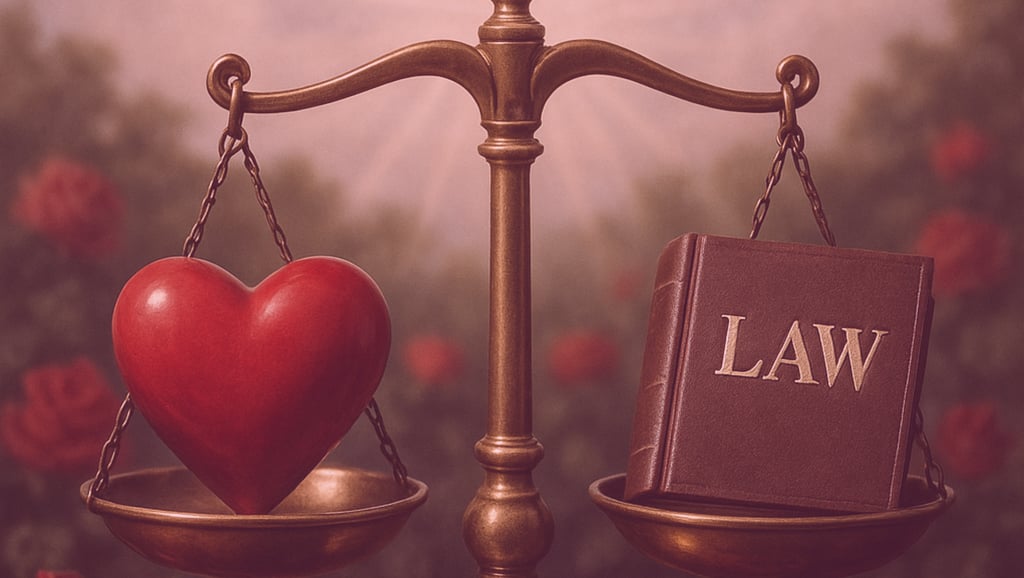The Law of Love
What Is Love, Really?
Heybie Writing Team
6/9/2024


Some of us are searching for eternal love. Some don’t believe in it at all.
Some have lost faith along the way, while others are just beginning their journey.
Some believe in love at first sight—others find the idea impossible.
But love... is it really just butterflies in your stomach, or something deeper?
It’s the force that makes poets immortalize their pain, pushes Majnun to wander the desert, and drives people to risk everything.
So what is love? How does this powerful, often puzzling emotion begin? Are the heart and brain on the same team in matters of love? Do unconscious processes influence our partner choices?
Let’s explore these questions together.
Love: More Brain Than Heart
Though entire books have been written about love, it remains elusive and difficult to define. One thing is certain: love is far more about the brain than the heart. It behaves like an addiction. All addictive substances stimulate the brain’s reward system, releasing dopamine—our so-called "happiness hormone."
And once dopamine starts flowing, the brain becomes insatiable, like a two-year-old throwing a tantrum until it gets what it wants. This is why being in love feels like floating through a pink cloud. The brain’s reward system is hard at work—and while it is, you’re walking on air.
But just like any addiction, when the source of that high is absent, the brain experiences withdrawal. You feel restless, needy, even desperate. Everything you do—dressing up, going out of your way, constantly thinking of them—is driven by the brain’s single-minded craving: to be with them again.
The Chemistry of Love: Hormones at Play
Studies show that people in love have higher levels of oxytocin and vasopressin—two hormones that influence bonding and attachment. Interestingly, vasopressin is also linked to loyalty.
A famous experiment on prairie voles and mountain voles highlights this beautifully. Prairie voles are monogamous and often stay with one partner for life—even waiting patiently near a cage if their mate is locked away. Mountain voles, by contrast, show no such loyalty.
Why? The prairie voles have more receptors for oxytocin and vasopressin. Mountain voles don’t even have the right receptors to process these hormones. So next time you see someone who's loyal and affectionate in love, now you know—hormones might be playing their part too.
The Unconscious Side of Choosing a Partner
Let’s go beyond biology and talk psychology. Despite the saying “opposites attract,” research shows that people are more likely to fall for someone who shares similarities with them. Familiarity feels safe.
In a fascinating 2004 study by psychologist John Jones and his colleagues, records of 15,000 marriages were examined. One surprising pattern emerged: people were significantly more likely to marry someone whose first name started with the same letter as their own.
For example, Esma and Enes—this may sound random, but it likely isn’t.
Why? Psychologists call this implicit egotism—our unconscious preference for things that remind us of ourselves. It turns out, we kind of love seeing our own reflection in others.
Closeness—Physically and Emotionally
There’s a reason our elders say, “Out of sight, out of heart.”
Physical proximity increases the chances of romantic attraction. You’re more likely to fall for someone you see regularly rather than someone you saw once, years ago.
But physical closeness isn’t enough—emotional closeness matters too. Shared values, mutual understanding, and emotional connection are what truly ignite feelings.
So yes, love is fueled by biology, psychology, and proximity.
But even after all this research, love still guards its mysteries. It remains delightfully unpredictable, full of complexity, and deeply human.
Maybe this piece will change how you view love.
But one thing will never change: love never takes the straight path.
To quote Stendhal:
"Love is like a beautiful flower, but you must have the courage to seek it on the edge of a cliff."
Here’s to finding that courage in your heart. 💛
